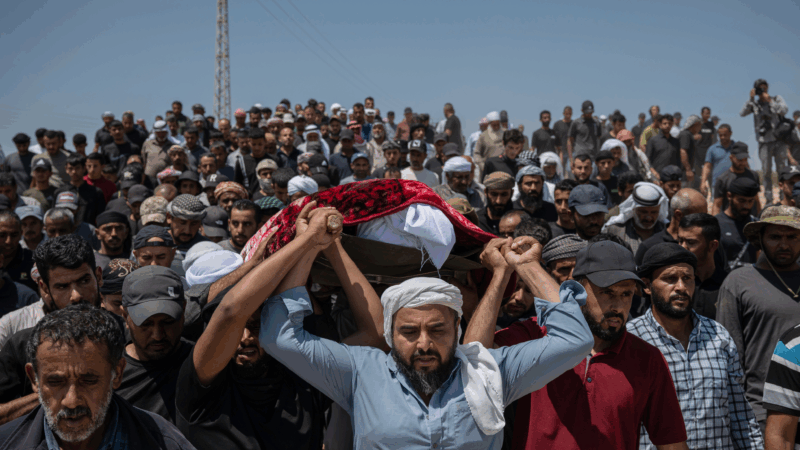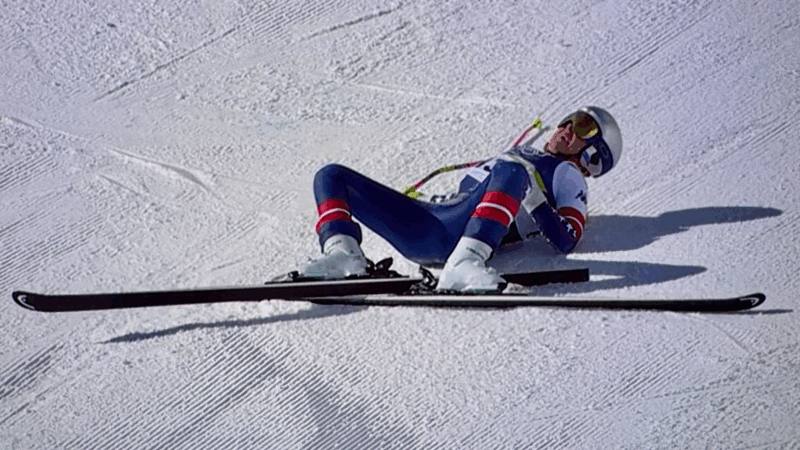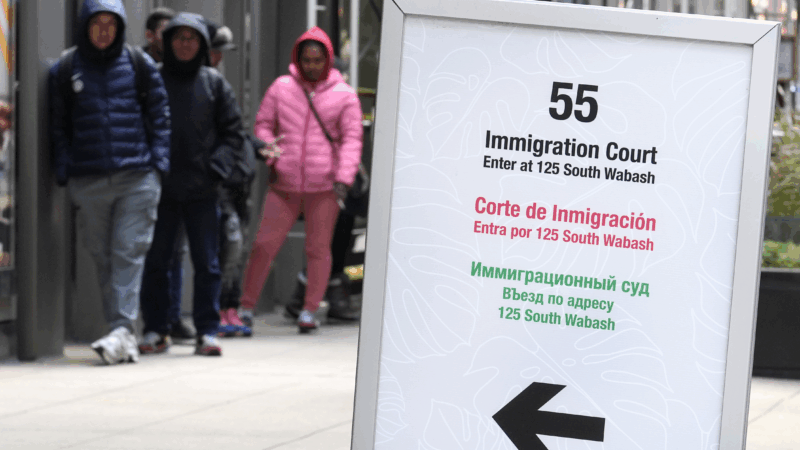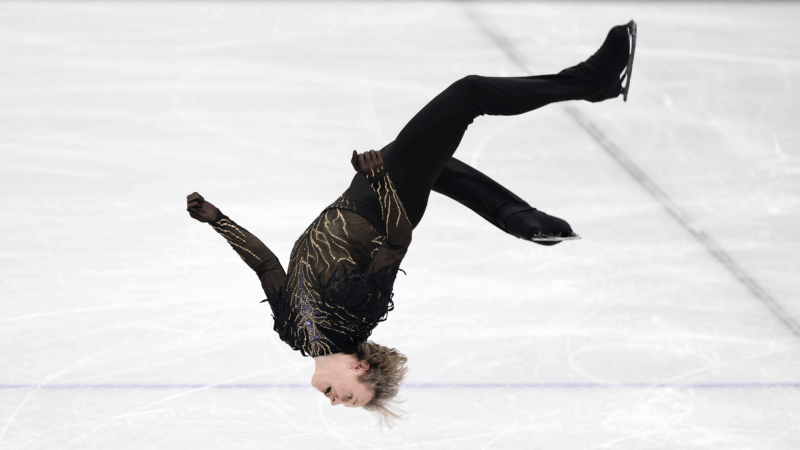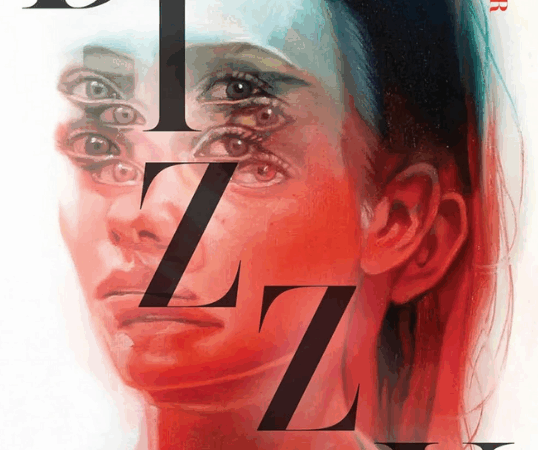A Palestinian activist was killed by the violence he sought to stop
UMM AL-KHAIR, West Bank — In this village of 500 people in the West Bank, a bulldozer worked steadily at a pile of boulders near cement-block houses.
The sounds of shoveling and heavy machinery could be heard under the cries of mourning from where dozens of villagers and visitors gathered on July 31 to grieve for Awdah Al Hathaleen, a beloved 31-year-old Palestinian activist, father of three and documentary filmmaker who was shot here four days earlier.
Hathaleen died in the kind of violence he spent his life trying to end. His story is that of many Palestinians living in the West Bank under Israeli occupation, with their lives and livelihoods under increasing threat from a strongly supported settler movement that is urged on by Israel’s current right-wing government.

In a widely circulated video, a settler who brought his bulldozer to the village in late July is seen waving and shooting his handgun toward villagers at the time Hathaleen was struck by a bullet. The settler, Yinon Levi, has long been notorious for attacks against Palestinians in the Israeli-occupied West Bank. He is currently under European Union sanctions for human rights violations. He was also sanctioned by the U.S. until January, when President Trump lifted those sanctions.
Levi was held by police for less than 24 hours, and after a brief period under house arrest is now free with no charges.
According to Muslim tradition, burial of the dead should take place within 24 hours, but Israeli authorities held Hathaleen’s body for 10 days, keeping his loved ones in agony while authorities insisted on restrictions around his funeral. In the end, Hathaleen’s family accepted the army’s restrictions on the funeral gathering and burial to be able to get his body back. He was finally laid to rest last Thursday, in a funeral attended by family, local residents and a few journalists who were able to get past a military checkpoint.

Ironically, the incident that led to Hathaleen’s death mirrored events in the Oscar-winning documentary Hathaleen helped make. No Other Land tells the story of the struggle of Palestinian villagers against violence by Israeli settlers in this area, and the continual encroachment by settlers of their land.
Hathaleen was widely known and respected around the world
Nadav Weiman is a former Israeli soldier who heads an organization of former soldiers called Breaking the Silence, which is working to end Israel’s occupation of the West Bank. Weiman says Hathaleen’s South Hebron Hills sheep herding village of Palestinian Bedouins was one of the first where his organization brought Israelis on educational visits some 20 years ago.
“Awdah was a peace activist but also a man of education,” says Weiman. “He could really speak to crowds and that’s why we brought so many people to meet him — because he gave a very interesting angle of what it is to be a Palestinian under Israeli occupation.”
Because of his work on No Other Land and his years of activism, Hathaleen, who was also an English teacher, had friends from all over the world. Hundreds of people joined a Zoom call to mourn him shortly after his death. Many remembered working closely with him.

European diplomats were among those paying respects to Hathaleen’s memory in Umm al-Khair ahead of his funeral. Their SUVs were parked on the small road that separates the village from the tightly fenced-in Jewish settlement of Carmel on a hill above it. The diplomats sat together under the mourning tent with dozens of village residents to offer condolences to Hathaleen’s brother Khalil Al Hathaleen.
“It is a terrible crime and it shows how vulnerable Palestinian communities are,” said Swedish diplomat Annika Malki. “We take this very seriously in Sweden and we would like to do what we can on our side.”
Khalil Al Hathaleen appealed to the diplomats.
“We hope from you to protect the local community here,” he said. “Because we’re being exposed to cleansing. Look around you. There’s no problem, there’s no military, no one’s evicting us — because you’re Europeans and you’re here. But the moment you leave, they’re going to come here.”
Attacks by settlers have increased since 2023
Israeli activist Guy Butavia has worked in the South Hebron Hills for 15 years to help communities keep their land as settlers try to take it away. He says while the expanding settlements have encroached on Palestinian land for decades, construction has accelerated under the government of Prime Minister Benjamin Netanyahu, whose Cabinet includes far-right settlers. Attacks on Palestinians have increased, especially since the war set off by the deadly Hamas-led attack on Israel on Oct. 7, 2023.
Between January and June of this year, there have been more than 2,000 settler attacks resulting in casualties or damage to property, according to OCHA, the United Nations humanitarian coordination body. In that period, 647 Palestinians have been killed in the West Bank — six killed in settler attacks, and most of the rest by Israeli forces. In all of 2024, OCHA recorded about 1,420 settler attacks and five Palestinian deaths.

Israeli peace activist Oriel Eisner has been staying overnight in Umm al-Khair since Hathaleen’s killing, to bear witness. He says after visitors like diplomats and journalists leave, the Israeli army moves in at night to make arrests of village men. More than a dozen young men from the village were arrested after Hathaleen was shot, some allegedly for throwing rocks at the bulldozer. They were held for more than a week.
“People aren’t sleeping,” he says. “People are terrified. The settlers, and the government in lockstep with them, are just doing whatever they want and taking over whatever land they want, doing whatever they want with the Palestinians.”
“In the last two years, it’s a totally different ballgame,” says Butavia. “The rules of the game changed. We used to protect Palestinians when they were going out to graze their livestock. Now they can’t reach their lands and can barely get out of the doors of their homes without coming under threat.”

He says activists have changed strategies — they are now staying overnight inside Palestinian homes to try to protect them and bear witness to settler violence. Because, he says, “If it’s not on camera, it didn’t happen.”
Since the war, he says, some settlers are now serving in the Israeli military and come back to patrol West Bank communities near their own settlements, where they behave with impunity. “They do whatever they like,” he says. “They are setting the rules. They decide who to arrest, who to kidnap, who to beat. They decide where you can go and where you cannot.”
In Hathaleen’s last message to his large WhatsApp group when the settler bulldozer rolled into his village on Sunday, July 27 — read aloud at the gathering with foreign diplomats and dignitaries before his funeral — he warned that settlers were trying to cut water to his community.
“The settlers are working behind our houses,” he wrote. “If they cut the pipe, the community here will literally be without any drop of water.”
A mother’s grief
In the women’s mourning tent, Hathaleen’s mother Khadra Al Hathaleen said her son was getting ready for a trip to the U.S. when the trouble began on the day he was shot.

“He was inside preparing his papers,” she says. “Then this guy came on the bulldozer and started cutting the olive trees. Somebody called for Awdah, so he went out. I followed — and there was blood.”
Hathaleen was not even in direct confrontation with Levi and his bulldozer, she says. He was struck while standing in a fenced-off, porch-like area. An Israeli ambulance showed up and she says she tried to accompany her son, who was still alive at that point.
“They took him and I said I want to go with my son,” she said. “But I was not allowed. Somebody hit me on the hand and slapped me on the face. It was the same guy who killed him.”
There is a large black bruise on her hand. After her son’s death, villagers placed a circle of rocks around the area of concrete stained with his blood, the place where he had fallen and struggled for breath.
Villagers hoped No Other Land‘s success would help protect them
“Awdah was our friend and he was a partner,” says Rabbi Avi Dabush, CEO of Rabbis for Human Rights, who was among many Jewish activists present in the mourning tent ahead of the funeral. “Unfortunately in [the government] there are people that believe only in violence, believe in Jewish supremacy. We believe in the core values for us of Judaism and even Zionism, of living together, or reaching out in peace.”

People in this village say they believed the Oscar-winning documentary that helped highlight their struggle with settler violence might bring them a measure of protection — perhaps even lay the groundwork for peace.

But just the opposite has happened, laments Basel Adra, one of the film’s directors. “Awdah was the most peaceful person,” he says. “He was the person that always gathered us — and he was shot in front of the community center that he built for the kids to play and to have summer camp and to learn.”
It’s been more than two weeks now since Hathaleen lost his life. His family had to bury him in a graveyard chosen by Israeli authorities. Activists say most days, Yinon Levi is back in Umm al-Khair working on his bulldozer — a reminder of who controls this land.
Nuha Musleh contributed to this story from Umm al-Khair.
Transcript:
AYESHA RASCOE, HOST:
There’s been an outpouring of grief around the world this week for a Palestinian activist who was shot and killed in the Israeli-occupied West Bank, the area of land captured and mostly controlled by Israel since the 1960 – the – since the 1967 war. The suspect is a settler well-known for his attacks on Palestinians. The man who died helped make this year’s Oscar-winning documentary, “No Other Land,” which is about settler violence and Palestinian displacement in the West Bank. NPR’s Eleanor Beardsley went to the village where he was killed.
(SOUNDBITE OF CAR DOOR SHUTTING)
ELEANOR BEARDSLEY, BYLINE: We’re arriving at the village of Umm al-Khair. This is where Awdah Hathaleen was killed and where he lived. It’s very hot here. We’re in the West Bank, rolling hills with boulders and rocks and olive trees and cactuses. And we’re right behind the settlement of Carmel, which is tightly enclosed in barbed wire with rolls of barbed wire on the top of the fence. Villagers are gathered under a mourning tent to grieve for the 31-year-old peace activist, English teacher and father of three small boys. Awdah al-Hathaleen’s death has drawn international attention, and a delegation of European diplomats has come. Their SUVs are parked on the dirt road beside the village of small stone houses with tin roofs. Annika Malki is the first diplomat to speak.
(SOUNDBITE OF ARCHIVED RECORDING)
ANNIKA MALKI: I am from Consulia Swedia (ph), the Swedish Consulate, and we would also like to convey our sincere condolences. It is a terrible crime, and it shows how vulnerable Palestinians’ communities are.
BEARDSLEY: Al-Hathaleen’s brother, Khalil, addresses them.
(SOUNDBITE OF ARCHIVED RECORDING)
KHALIL: (Through interpreter) We hope from you to protect the local community here because we’re being exposed to cleansing. Look around you. There’s no problem. There’s no military. No one’s evicting us because you’re Europeans and you’re here. The moment you leave, they’re going to come here.
BEARDSLEY: Allegra Pacheco, chief of party for the West Bank Protection Consortium, has been helping this isolated community of 500 people for the last eight years. She reads al-Hathaleen’s last message to his large WhatsApp group when the settler bulldozer rolled in last Sunday.
(SOUNDBITE OF ARCHIVED RECORDING)
ALLEGRA PACHECO: (Reading) Urgent call – the settlers are working behind our houses. And the worst, they’re trying to cut the main water pipe for our community. We need everyone to act. If you can reach people like the congress, the courts, please do everything. If they cut the pipe – I’m sorry. If they cut the pipe, the community here will literally be without any drop of water.
That was his last message, sent at 3 p.m. on Sunday.
BEARDSLEY: Israeli peace activist Oriel Eisner has been sleeping here since the killing to bear witness. He says in the night, when the visitors are gone, the Israeli army comes in to arrest people.
ORIEL EISNER: People aren’t sleeping. People are terrified. The settlers and the government, in lockstep with them, are just doing whatever they want and taking over whatever land they want, doing whatever they want with the Palestinians.
BEARDSLEY: Eisner says while this has been going on for decades, it’s accelerated since the war, and with the inclusion of far-right settlers in the Israeli cabinet. Seventeen villagers arrested for throwing rocks are still being held, but the settler who allegedly shot al-Hathaleen was released after being detained just 24 hours. He has not been charged…
(CROSSTALK)
BEARDSLEY: …Despite widely circulated video that shows Yinon Levi wildly waving his handgun…
(SOUNDBITE OF ARCHIVED RECORDING)
UNIDENTIFIED PERSON #1: (Shouting in Arabic).
UNIDENTIFIED PERSON #2: (Shouting in Arabic).
BEARDSLEY: …And shooting towards a group of village men who are trying to stop the bulldozer. The settler has been sanctioned by the EU and the U.S., though President Trump lifted those sanctions. Israeli authorities are also refusing to release al-Hathaleen’s body unless his family agrees to a private funeral with no media. That’s another humiliation, says al-Hathaleen’s brother, Khalil.
KHALIL: Burial has to be in daylight. It has to be with the presence of all his friends, his people and the media.
UNIDENTIFIED PERSON #3: (Speaking Arabic).
BEARDSLEY: This area of the West Bank, where Israeli settlements are being swiftly built, is entirely under Israeli military law, and Palestinians have few rights.
KHADRA AL-HATHALEEN: (Speaking Arabic).
BEARDSLEY: We head to the women’s mourning tent, where there are dozens of mothers with their children. We speak to al-Hathaleen’s mother, Khadra (ph) al-Hathaleen, through an interpreter. She says her son was inside, preparing for a trip to the U.S., when the trouble began.
AL-HATHALEEN: (Through interpreter) This guy came on the bulldozer, and he started cutting the trees. Somebody called Awdah. Awdah went out. I followed, and there was blood.
BEARDSLEY: An Israeli ambulance eventually came, and she tried to get in.
AL-HATHALEEN: (Through interpreter) They took him. I said, I want to go with my son. But I was not allowed. Somebody hit me on the hand and slapped me on the face. It’s the same guy who killed him.
BEARDSLEY: There’s a black bruise on her hand.
(SOUNDBITE OF ARCHIVED RECORDING)
AVI DABUSH: Awdah was our friend, and he was our partner.
(Speaking Hebrew).
BEARDSLEY: Avi Dabush, the CEO of Rabbis for Human Rights, speaks to the mourners.
BEARDSLEY: There are many Jewish activists here. Dabush says they are fighting for the return of al-Hathaleen’s body and for the person who shot him to face justice. But he says that’s going to be difficult under Israel’s current right-wing government.
(SOUNDBITE OF ARCHIVED RECORDING)
DABUSH: Unfortunately, in the coalition, there are people that believe only in violence, believe in Jewish supremacy. We believe in the core values, for us, of Judaism and even Zionism – of living together, reaching out in peace.
(SOUNDBITE OF FILM, “NO OTHER LAND”)
UNIDENTIFIED NARRATOR: 1,000 Palestinians face one of the single biggest expulsion decisions since the Israeli occupation of the Palestinian territories began.
BEARDSLEY: Tragically, people in this village say they believed the Oscar-winning documentary about their struggle with settler violence, “No Other Land,” might bring a measure of protection and even lay the groundwork for peace, even though it was never screened in Israeli cinemas. But just the opposite has happened, says Basel Adra, one of the filmmakers.
BASEL ADRA: Awdah was the most peaceful person. He was the person that always gathered us. And he was shot in front of the community center that he built for the kids to play and to have summer camp and to learn.
(SOUNDBITE OF BULLDOZER BEEPING AND CLANKING)
BEARDSLEY: As the village mourns and waits in agony to bury its fallen son, the settlers’ bulldozer working steadily away through it all is a reminder of who controls this land.
Eleanor Beardsley, NPR News, Umm al-Khair in the occupied West Bank.
Lindsey Vonn says she suffered ‘complex tibia fracture’ in her Olympic downhill crash
The 41-year-old star said her torn ACL was not a factor in her crash. "While yesterday did not end the way I had hoped, and despite the intense physical pain it caused, I have no regrets," she wrote.
Guerilla Toss embrace the ‘weird’ on new album
On You're Weird Now, the band leans into difference with help from producer Stephen Malkmus.
Nancy Guthrie search enters its second week as a purported deadline looms
"This is very valuable to us, and we will pay," Savannah Guthrie said in a new video message, seeking to communicate with people who say they're holding her mother.
Immigration courts fast-track hearings for Somali asylum claims
Their lawyers fear the notices are merely the first step toward the removal without due process of Somali asylum applicants in the country.
Ilia Malinin’s Olympic backflip made history. But he’s not the first to do it
U.S. figure skating phenom Ilia Malinin did a backflip in his Olympic debut, and another the next day. The controversial move was banned from competition for decades until 2024.
‘Dizzy’ author recounts a decade of being marooned by chronic illness
Rachel Weaver worked for the Forest Service in Alaska where she scaled towering trees to study nature. But in 2006, she woke up and felt like she was being spun in a hurricane. Her memoir is Dizzy.

